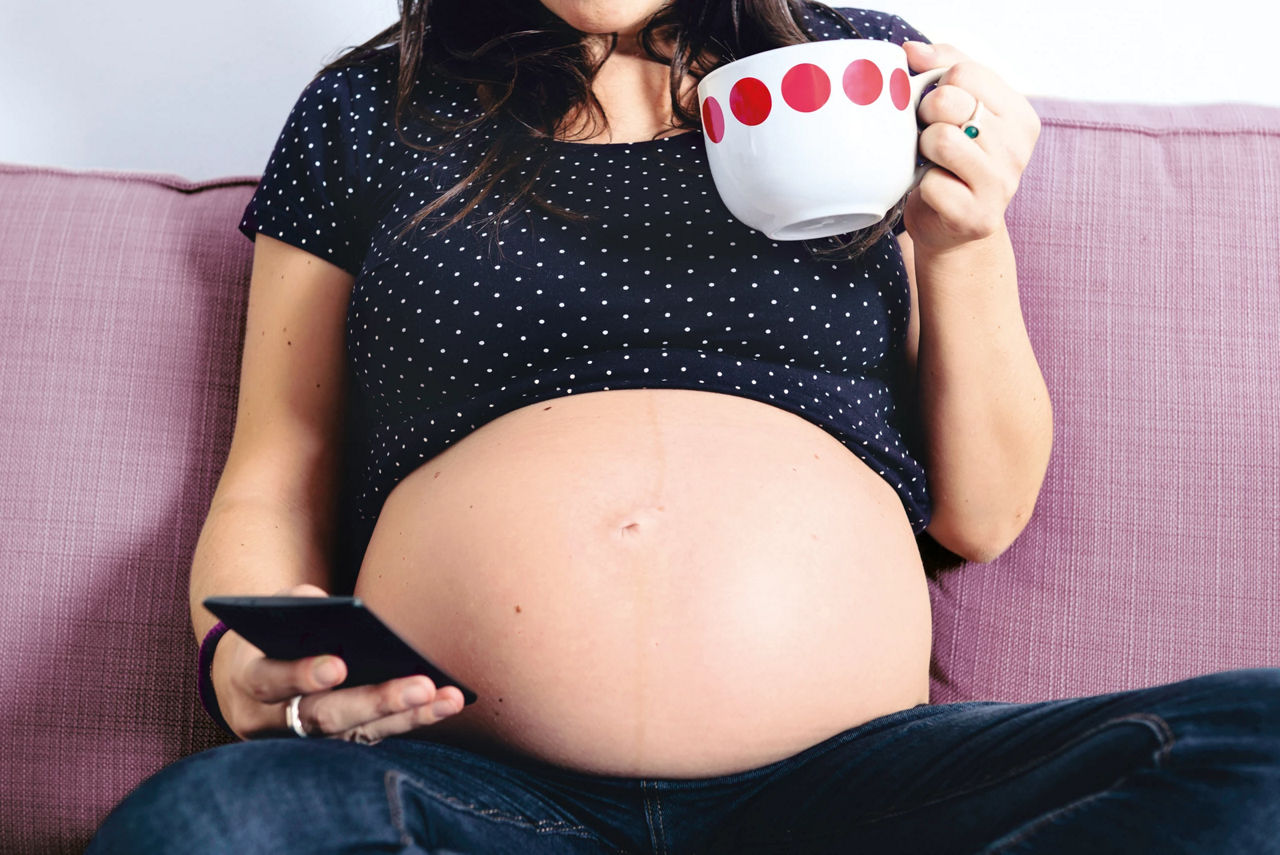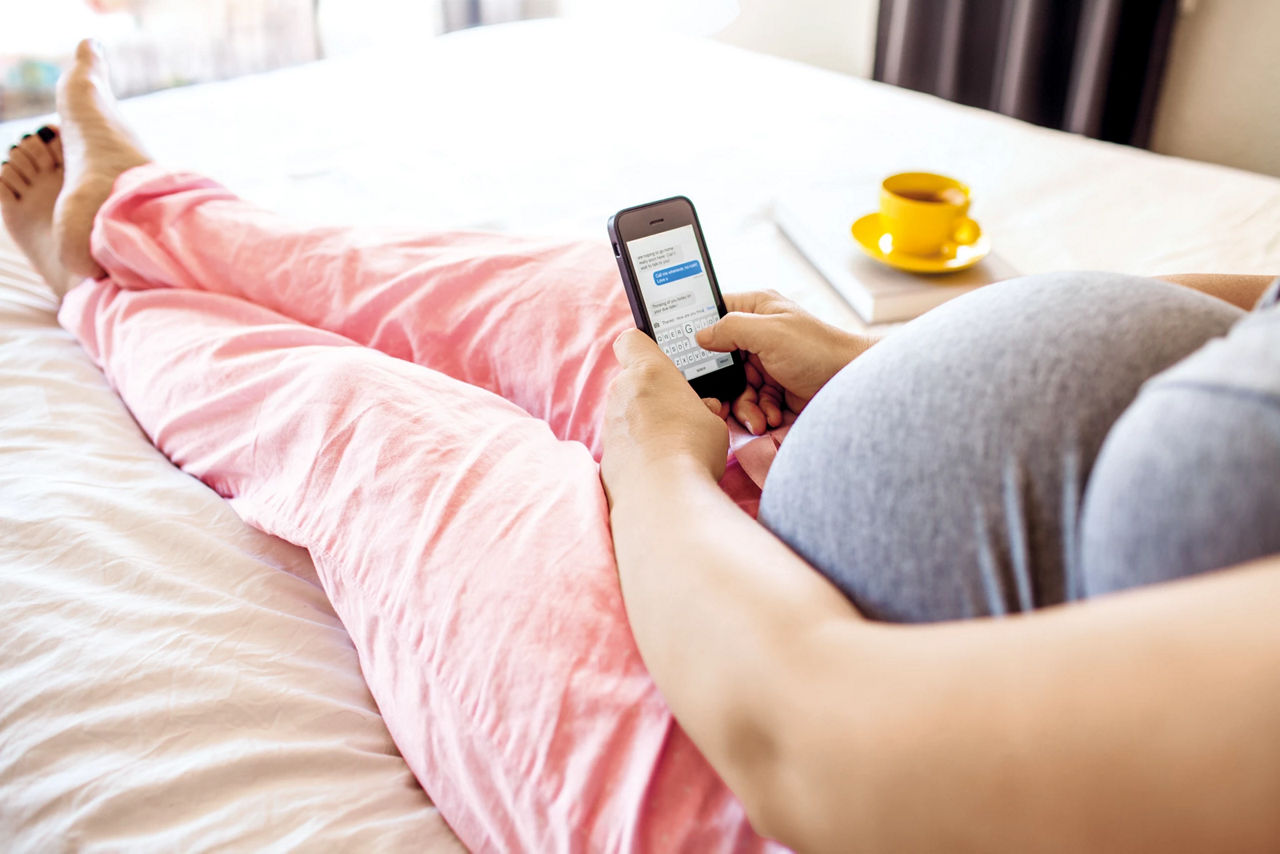Free weaning plan - Register here
Urinary tract infections (UTIs, also called water infections) can affect any area of your urinary tract, including your bladder, urethra and kidneys1. Cystitis is a type of UTI where the infection affects your bladder2.
Women are more likely to get cystitis than men already because their urethras are shorter, so it’s easier for bacteria to make its way up to the bladder2. Being pregnant can make it harder to empty your bladder completely when you have a wee to flush any bacteria out, making UTIs and cystitis even more common3.
Managing cystitis and UTIs during your pregnancy
Luckily, there are things you can do to help prevent water infections during pregnancy, and they’re usually easy to treat if you do get one (2). Let’s take a closer look at cystitis and pregnancy, including symptoms to watch out for and possible treatments.
Symptoms of cystitis in pregnancy
Signs that you might have cystitis or another UTI include2:
- A pain or burning sensation when you have a wee.
- Feeling like you need a wee more often and more urgently than normal.
- Wee that looks dark or cloudy, and has a strong smell.
- A pain in your lower stomach (read more about stomach pain in pregnancy here).
Cystitis can get better by itself, but you should see a GP if you have symptoms of cystitis during pregnancy so they can make sure you and your little one stay healthy2.
Call 111 straight away if you think you have cystitis with additional symptoms like2:
- A very high or very low temperature.
- Feeling confused or drowsy.
- A severe pain in your lower stomach or lower back.
- Feeling or being sick.
- Blood in your pee.
These can be signs of a kidney infection, which will need to be treated straight away2.

Treating UTIs and cystitis in pregnancy
Even if you’ve had UTIs or cystitis before and they usually go away on their own, you should always let your GP or midwife know as soon as you notice the symptoms while you’re pregnant4. It may be that they'll send a sample of your urine for culture testing5.
If you leave cystitis untreated, there’s a chance it could lead to complications in your pregnancy4. But speaking to your GP or midwife will mean that you get the right treatment to protect yourself and your baby.
Often, that will mean having a short course of pregnancy-safe antibiotics to help fight the infection4. Your GP or midwife might take a sample of your wee before they prescribe anything to make sure you get the right medication4.
Self-treatment for cystitis
It’s always best to seek medical advice if you suspect you have cystitis in pregnancy, as this is the best way to ensure you’re getting the treatment you need.
Cystitis can clear up on its own, so if your symptoms are mild, your GP might give you some tips to help it along. These might include2:
- Taking paracetamol according to the instructions on the pack.
- Drinking lots of water.
- Holding a hot water bottle on your lower tummy.
- Avoiding sex.
You might have heard that drinking cranberry juice can help prevent UTIs and ease some of the symptoms. There’s not much evidence that this works, particularly once the symptoms have set in2. But if you don’t mind the taste, then there’s no harm in giving it a go2.
Preventing UTIs in pregnancy
Try following these steps to help prevent cystitis and other water infections during pregnancy2:
- Go for a wee as soon as possible after having sex.
- Wipe from front to back when you go to the toilet.
- Drink plenty of water.
- Wash yourself (and your bits!) regularly but avoid scented products where you can.
- Go for a wee as soon as you can when you get the urge, and take your time when you do go to try to empty your bladder completely.
Last reviewed: October 2024
Reviewed by Nutricia’s Medical and Scientific Affairs Team
- NHS (2022). Urinary tract infections (UTIs) [online] Available at https://www.nhs.uk/conditions/urinary-tract-infections-utis/ [Accessed August 2024]
- NHS (2022). Cystitis [online] Available at https://www.nhs.uk/conditions/cystitis/ [Accessed August 2024]
- NHS Inform (2024). Common problems in pregnancy [online] Available at https://www.nhsinform.scot/ready-steady-baby/pregnancy/health-problems-in-pregnancy/common-problems-in-pregnancy/ [Accessed August 2024]
- Tommy's (2023). Painful urination in pregnancy [online] Available at https://www.tommys.org/pregnancy-information/pregnancy-symptom-checker/painful-urination-pregnancy [Accessed August 2024]
- NICE (2018). Recommendations/Urinary tract infection (lower): antimicrobial prescribing/ guidance/NICE. [online] Nice.org.uk. Available at: http://nice.org.uk/guidance/ng109/chapter/recommendations. [Accessed October 2024]

Join our baby club
Ready to stop worrying about what other people think and do what feels right to you? We’ll give you the support you need to follow your instincts and enjoy parenthood to the max:
Helpful emails
Non-judgemental support
Free weaning plan
Tips from real parents
More from pregnancy
Pregnancy topics
Need free advice with a smile? Get in touch with our dedicated Care team.
Ask us a question (8am - 8pm Monday to Friday, 10am - 4pm Weekends)
Messenger
Contact us on Facebook (10am - 10pm, 7 days a week)
Call us
Call us on 0800 977 8880 (8am - 8pm Monday to Friday)
FAQs
Get answers to your most frequently asked questions





